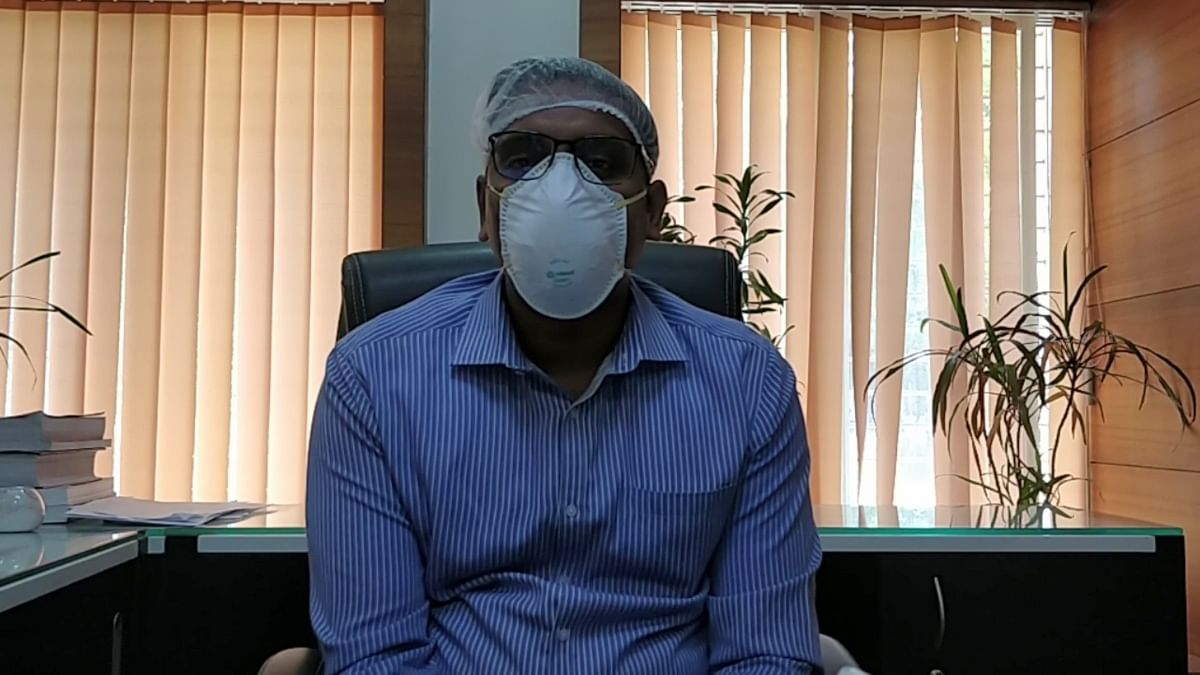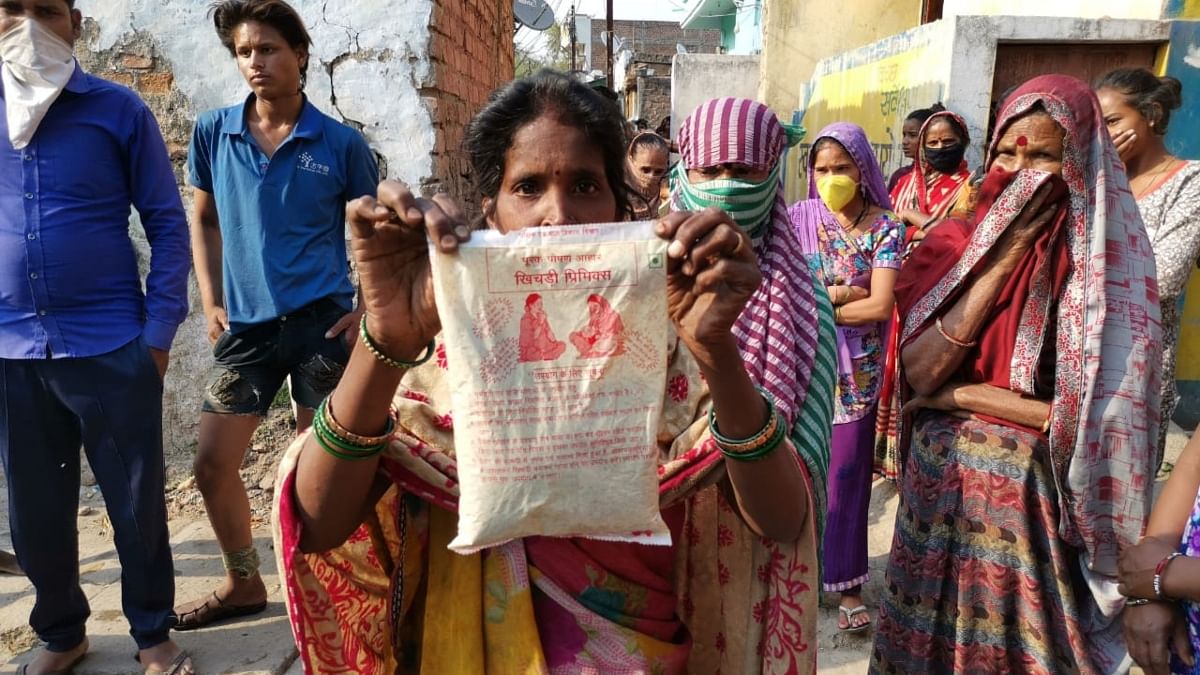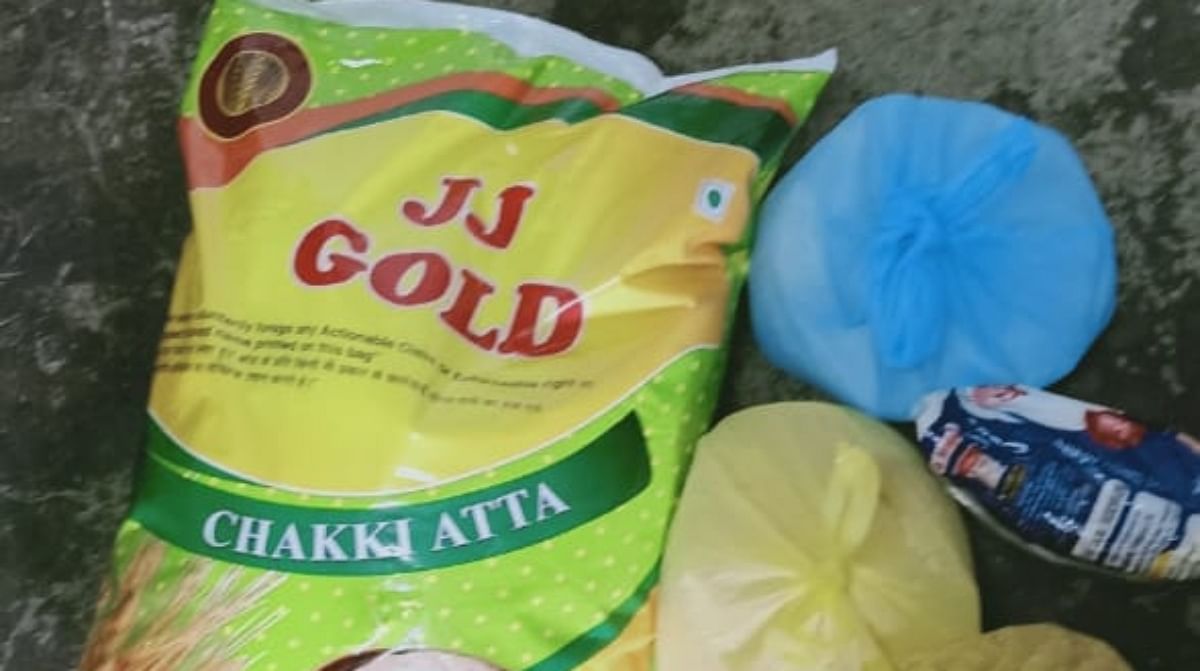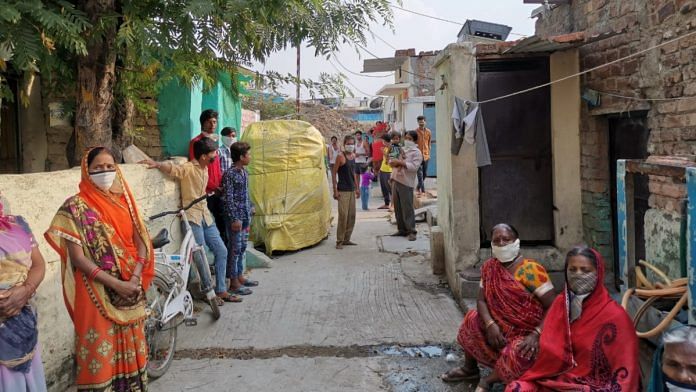Indore: For the residents of Badal ka Bhatta colony in northern Indore, the Covid-19 lockdown has brought about an extended period of unemployment and scarce food supplies.
The 40-odd families living in the colony are mostly daily wagers and domestic help. But since the lockdown came into effect on 25 March, they are all out of work.
“We were getting by with our jobs (before the lockdown). But now there is no ration and no money to buy anything. With the extension of the lockdown, how will we survive,” asked 24-year-old Pintu Jatav, a painter by profession.
Residents complained they are running out of food as the authorities visited their colony just once since the lockdown. Moreover, the items they received were insufficient to feed their families — some with as many as 24 members.
The lockdown challenge
The lockdown in Indore, a Covid-19 hotspot in Madhya Pradesh that recorded 897 cases and 52 deaths as of Sunday night, has been one of the strictest in the country.
The usually bustling commercial centre has now turned into a ghost town as only barricades, police personnel and small crowds can be seen around medical stores.
Commissioner of Indore Municipal Corporation Asheesh Singh told ThePrint the containment and isolation were the only way to control the rising number of cases in the city.

“But it was important to ensure that essential supplies and services are being sent, so that people don’t come on the roads,” he said.
Singh said the municipal corporation started a delivery system — a few days after the lockdown was announced — through which packets of 15 essential items, including milk, 10-kilo wheat, 10-kilo rice, 2-kilo dal, sugar, oil, salt and vegetables like potatoes and onions, are being sent to people.
Deliveries are either made on requests received through a helpline or through a distribution mechanism implemented with the help of social organisations.
According to the commissioner, 1,05,000 dry ration baskets have been delivered until Thursday last week and 40,000 cooked food packets are being delivered daily.
“We have created a helpline on which we get 8,000 calls daily by both those who live in hostels and the poor. We also have a list of all the bastis (slums) where the poor live and made two kinds of arrangements for them. First, we made food packets and through social organisations, we reached out to them. Apart from that, we also distribute dry rations… We maintain a proper record and go to the bastis one week later,” he said.
But the situation in Badal ka Bhatta tells a different story.
Also read: At Indore’s Covid-19 Ground Zero, there’s fear, suspicion and hostility — but some hope too
‘Should we die hungry or poison our kids?’
When ThePrint visited the colony last Wednesday, it had been over a week since the residents had received ration from the administration.
According to the residents, the ration packets they received earlier didn’t have enough quantities of food items.
“In the packets that Dipu Yadav, the local councillor, sent, there were only 2.5 or 2 kilos of wheat. Some had one kilo of onion, some only half a kilo… Also no one in our colony received sugar or tea,” said housewife Sarika Goud.
As supplies ran out, calls to the civic body’s helplines became more frequent.
The residents were also forced to eat sattu (a healthy flour), supplied by a local anganwadi, as they have no rice or wheat.

Kiran Santosh, a housewife, was extremely exasperated as she wasn’t getting food supplies since the past few days.
“We called all the numbers but they only kept saying that the food will come… What will we do? Should we die hungry or poison our kids and then ourselves?”
Faced with such erratic food supplies, as many as 40 residents even tried to meet local MLA Sanjay Shukla to raise the issue.
“We went there (to Sanjay Shukla’s) place, but they didn’t let us in. The police told us to go away… When the election happens, they all come with their hands folded and we support them believing that they will help us,” said Sushilabai, who used to work as a domestic help.
Residents buying food at exorbitant price
With no food at home, some residents have been stepping out, violating the lockdown, to buy ration, prices of which have increased manifold.
The residents said 5-kilo atta (flour), which usually costs Rs 110, is being sold at Rs 500 now. “If the government makes these things available, we won’t have to go out of the house,” said daily wager Munna Lal.
Asked about these crises in the colony, commissioner Singh said the initial supplies have been sufficient for the families and the civic body was receiving constant feedback from the network of councillors and political representatives along with the helplines.
“We have started a rotation once again in those areas. The areas that you are talking about, they will get it in 1-2 days,” he said last Thursday.
The problem, however, seems to have persisted as the residents told ThePrint the second round of ration packets they received Friday also had insufficient quantities.
“This time we only received 5-kilo atta, half kilo rice, half kilo toor dal, half kilo sugar and half kilo salt. We didn’t get potatoes or onions… How can this last for a family of 10?” said resident Sitadevi Jat.

Also read: 5-hr sleep, limited PPE, bath outside home: Life of officers called back to aid hotspot Indore




You are a biased reporter. Instead of investigating root cause of the problem you only believe in highlighting some odd cases white washing all the efforts of local administration for last 30 days where they have provided free of cost food items to all needy people. Instead to supporting and becoming an active enablers you only become a negative catalyst in the process. Shame on you.
Feeding poor, out of work Indians cannot be left to Sikh gurudwaras or Shri Rishad Premji. The scale of the requirement goes beyond philanthropy. The government, after paying for the medical response, has to fund this sacred duty and obligation.